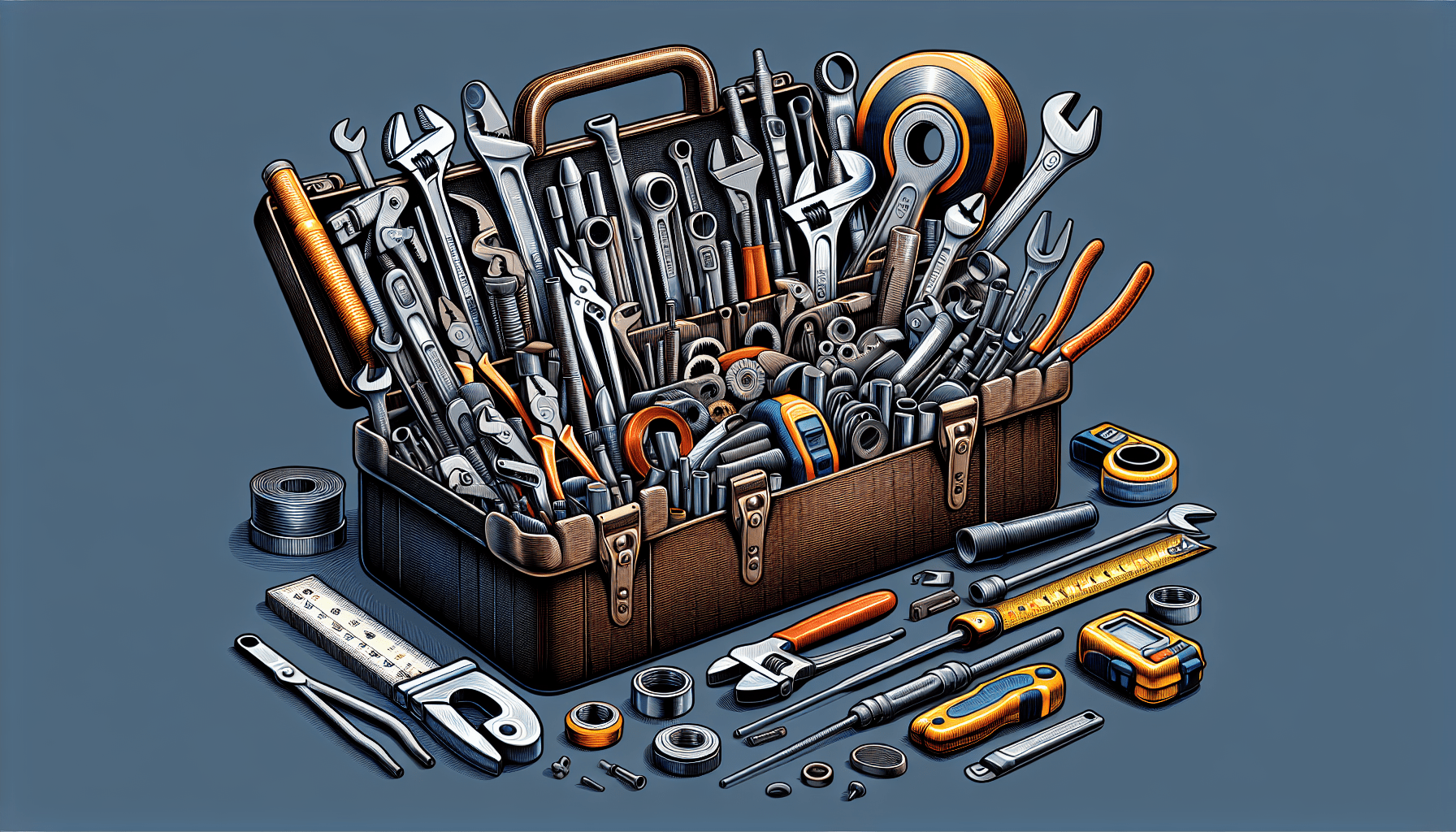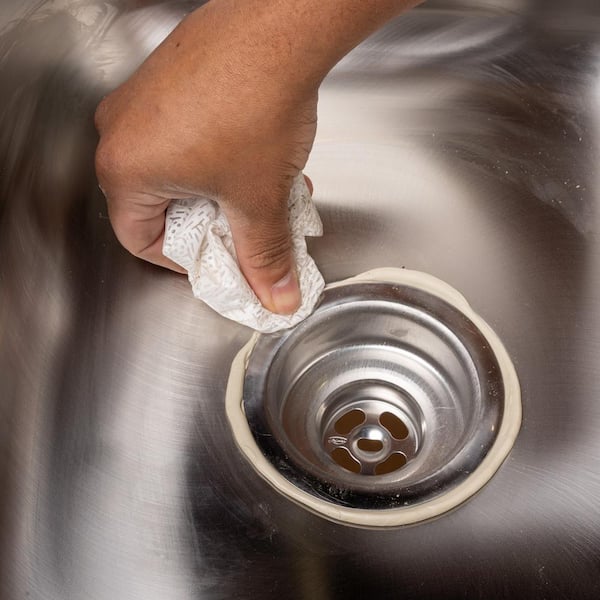If you’ve ever wondered about the time and effort it takes to become a plumber, this article will provide you with all the answers you need. Discovering how long it takes to train for this profession is crucial, whether you’re considering a career change or simply want to expand your knowledge. From apprenticeships to trade schools, we will explore the various paths you can take to embark on a rewarding journey as a skilled plumber. So, let’s dive into the world of plumbing and uncover the time it takes to become a proficient plumber.
How Long Does It Take To Train To Be A Plumber?
Becoming a plumber requires dedication and specialized training. If you are considering this career path, you may be wondering how long it takes to become a fully-trained plumber. The training process can vary depending on the pathway you choose, including apprenticeship programs, trade schools, or on-the-job training. Factors such as prior experience and knowledge, individual learning abilities, and program efficiency can also affect the duration of your training. In this article, we will explore the different training options available for aspiring plumbers, discuss the factors that can impact training duration, and highlight the importance of licensing, certification, and continuing education in this field.
Understanding the Training Process
Before delving into the various training options, it is important to understand the significance of proper training for plumbers. Plumbing is a highly skilled profession that requires expertise in areas such as installing, repairing, and maintaining different plumbing systems. By undergoing comprehensive training, you can acquire the necessary knowledge and skills to perform these tasks efficiently and effectively.
Plumbing training typically covers a wide range of topics, including plumbing codes and regulations, pipe fitting, water supply systems, drain and sewer systems, and gas pipe installation. It involves both theoretical learning and practical hands-on experience to ensure that plumbers are well-prepared to tackle real-world plumbing challenges.
There are several pathways to becoming a plumber, each with its own unique training process. Let’s explore some of the options available.
Apprenticeship Programs
Apprenticeship programs are a popular choice among aspiring plumbers as they combine classroom instruction with practical on-the-job training. These programs are typically organized by trade unions or plumbing associations and allow apprentices to learn from experienced plumbers.
The duration of apprenticeships can vary depending on the program and jurisdiction, but they generally last between four to five years. During this time, apprentices work alongside experienced plumbers, gaining valuable hands-on experience while also attending scheduled classes to learn theoretical concepts.
Apprenticeship programs are structured in a way that allows apprentices to gradually develop their skills and knowledge. They start with basic tasks and progress to more complex plumbing work as they gain experience. Apprentices also have the opportunity to earn a wage while they learn, making apprenticeships an appealing option for those who prefer learning through practical work experience.
Trade Schools and Vocational Training
Trade schools and vocational training institutions offer specialized plumbing programs that can provide comprehensive and focused training. These programs are often shorter in duration compared to apprenticeships, usually ranging from several months to two years, depending on the program length and intensity.
Plumbing trade schools focus on teaching the fundamental principles and skills required for plumbing work. The curriculum typically includes both theoretical and practical components, enabling students to gain a solid foundation in various plumbing techniques and systems. This training equips students with the knowledge and skills necessary to perform entry-level plumbing tasks.
One advantage of trade school training is the opportunity for faster entry into the workforce. Since the programs are shorter in duration compared to apprenticeships, students can complete their training and start working as plumbers sooner.
On-the-Job Training
On-the-job training, sometimes referred to as informal apprenticeships, involves learning by working under the supervision of experienced plumbers. This type of training is typically less structured compared to formal apprenticeship programs, but it still provides valuable hands-on experience and skill development.
The duration and structure of on-the-job training can vary depending on the arrangement and the willingness of experienced plumbers to mentor and guide newcomers. Some individuals may start as helpers or assistants and gradually learn the trade over a period of several years. Others may learn through shadowing experienced plumbers on job sites and gradually taking on more responsibilities as their skills grow.
While on-the-job training does not typically follow a predetermined timeline, it is an accessible option for those who want to gain practical experience in the plumbing field without committing to a formal apprenticeship or trade school program.
Duration of Different Training Options
When determining the duration of your plumbing training, it is important to consider the different options available and their respective timeframes.
Apprenticeships are the longest training option, typically lasting between four to five years. The structured nature of apprenticeship programs allows apprentices to gradually progress and gain experience, ensuring they acquire the necessary skills and knowledge to be successful plumbers.
Trade school programs, on the other hand, generally range from several months to two years. The shorter duration of these programs enables students to acquire foundational plumbing skills and enter the workforce sooner.
On-the-job training duration can vary significantly, depending on the arrangement and the individual’s ability to quickly gain experience and knowledge. Some may acquire proficiency in a shorter period, while others may require more time.
Factors Affecting Training Duration
Several factors can influence the duration of your plumbing training regardless of the pathway you choose.
Prior experience and knowledge play a significant role in determining how quickly you can complete your training. If you have prior experience in a related field or have taken relevant courses, you may have a head start and be able to progress through your training at a faster pace.
Individual learning abilities can also affect training duration. Some individuals may grasp plumbing concepts and techniques more quickly, allowing them to progress more rapidly. Others may require additional time and practice to fully understand and master the skills being taught.
The efficiency of the training program itself is another important factor. A well-structured and organized program that delivers comprehensive training materials and resources can expedite the learning process. Additionally, the availability of experienced mentors and instructors who can provide guidance and support can greatly enhance the training experience.
The progression and mastery of skills also contribute to the training duration. Plumbing is a trade where hands-on experience is crucial, and the more practice and exposure you have to different scenarios, the more proficient you will become. Taking the time to fully develop your skills during training helps ensure that you are well-prepared for the challenges you will face in your plumbing career.
Licensing and Certification Requirements
Once you have completed your training, obtaining the necessary licenses and certifications is vital to becoming a professional and recognized plumber. Different jurisdictions have varying requirements for licensing plumbers, and these requirements can impact the duration of your training.
Licensing serves as a means to ensure that plumbers possess the necessary knowledge and skills to protect public health and safety. In most cases, obtaining a plumbing license requires passing an exam that tests your understanding of plumbing codes, regulations, and best practices.
Certifications, on the other hand, are optional but can further enhance your credentials and marketability as a plumber. Various organizations offer certifications that focus on specific areas of plumbing, such as backflow prevention or green plumbing practices.
The time required to prepare for these exams and fulfill the licensing and certification requirements can lengthen the overall training duration. It is important to research the specific requirements of your jurisdiction and plan accordingly.
Continuing Education
Continuing education is a crucial aspect of being a professional plumber. It allows you to stay up-to-date with the latest industry advancements, techniques, and regulations. While continuing education does not directly impact the initial training duration, it plays a significant role in ongoing professional development.
Continuing education courses and workshops offer opportunities to expand your knowledge, refine your skills, and stay informed about emerging trends in the plumbing industry. Additionally, some certifications require periodic renewal, which often involves completing a certain number of continuing education hours.
By regularly participating in continuing education, you can remain competitive in the field, provide the best service to your clients, and ensure that you are aware of any changes that may affect your work.
Conclusion
In conclusion, the time it takes to train to be a plumber can vary depending on the training pathway you choose and several other factors. Apprenticeship programs typically last around four to five years, while trade school programs can range from several months to two years. On-the-job training durations are flexible and can vary greatly. Factors such as prior experience, individual learning abilities, program efficiency, and the mastery of skills can influence the duration of training.
Obtaining the necessary licenses and certifications is an important aspect of becoming a professional plumber and may require additional time and preparation. Continuing education also plays a vital role in a plumber’s ongoing professional development.
Consider your own circumstances, preferences, and goals when choosing the right training path for you. Becoming a plumber can be a rewarding career choice, offering stability, job satisfaction, and the opportunity to make a positive impact on people’s lives through your plumbing expertise.





